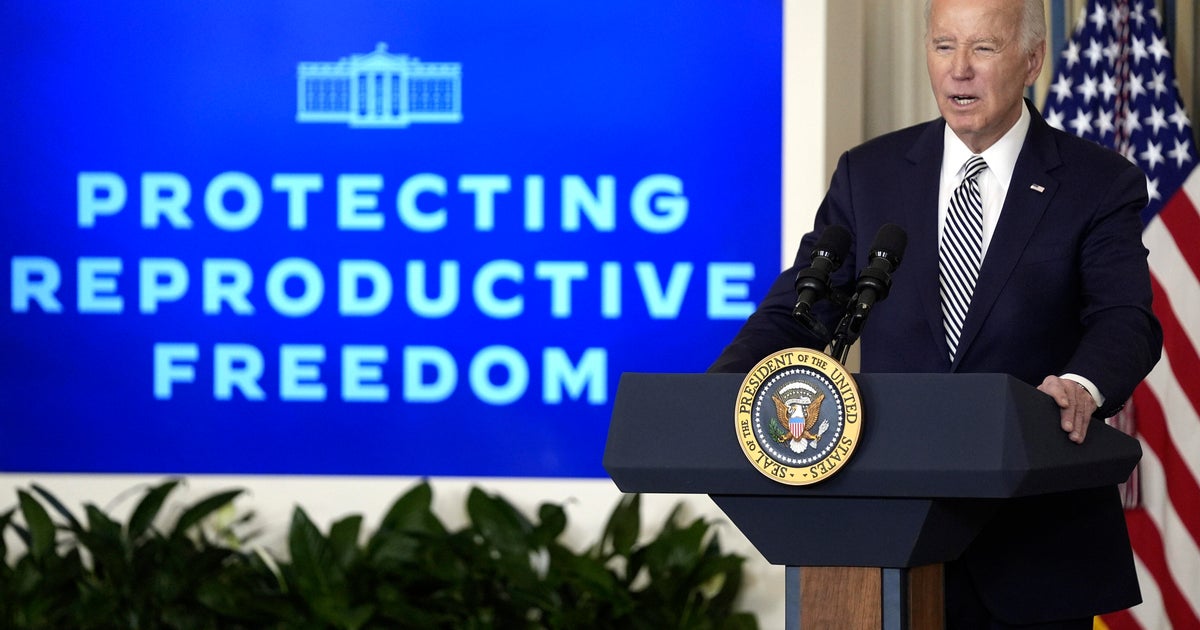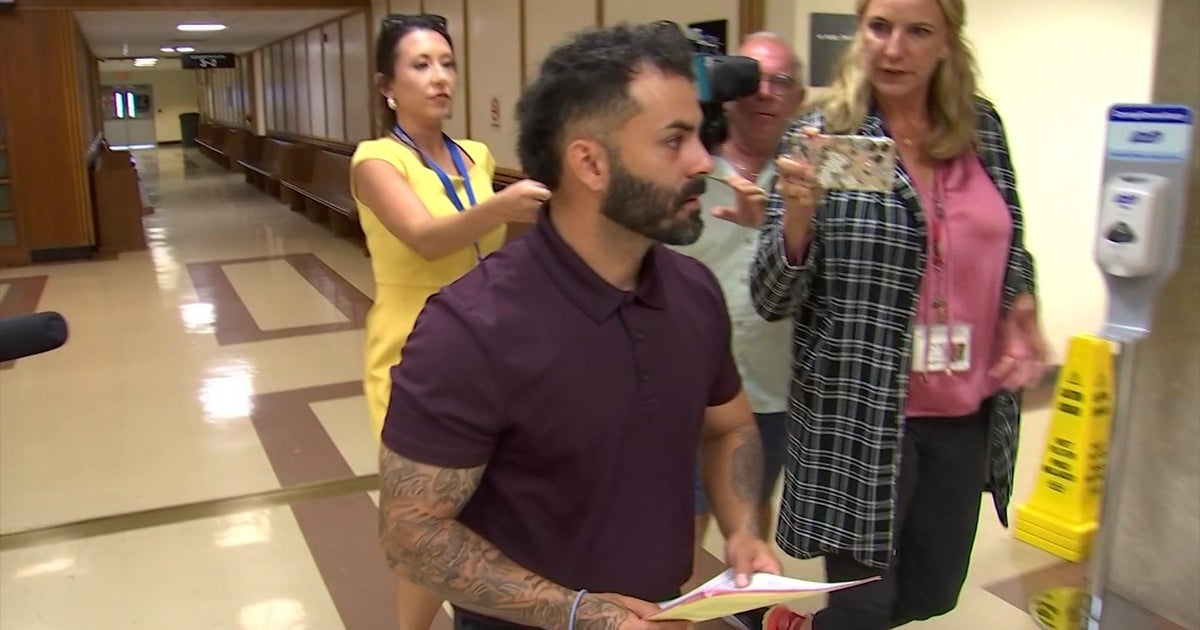Florida Senate Passes Controversial 'Don't Say Gay' Bill
MIAMI (CBSMiami) - The Florida Senate passed a controversial bill Tuesday that would limit the discussion of sexual orientation and gender identity in schools.
Critics argue the bill marginalizes LGBTQ people.
House bill 1557 passed by a vote of 22 in favor and 17 opposed.
The Florida House voted 69-47 to pass the measure last month.
Supporters of the proposal, which has the title "Parental Rights in Education," argued that it is geared toward ensuring that curriculum is age-appropriate for young students and that parents have increased control over their children's education.
The measure, which heads to the governor's desk, would prohibit classroom instruction on sexual orientation or gender identity in kindergarten through third-grade.
For older students, the bill would bar such instruction that is "not age-appropriate or developmentally appropriate" as determined by state academic standards.
"This (bill) doesn't prevent that teacher from helping a student, from advising a student. What it does is specifically speak to planned instruction," Sen. Manny Diaz Jr., R-Hialeah, said in supporting the measure.
Senate Minority Leader Lauren Book, D-Plantation, echoed opponents in arguing the proposal isn't needed.
"Despite the premise of the bill, I can tell you with absolute, 100 percent certainty, Florida's educators are not indoctrinating young children with age-inappropriate or developmentally inappropriate curriculum. They're not secretly pushing the gay agenda, the trans agenda, the woke agenda. It's just not happening," Book said.
Book also described the "spirit" of the bill as discriminatory.
"Members (senators), before you vote today, consider for yourself what kind of message do you, do we, want to send to every single person in the state of Florida and around the world?" Book added. "Does this body want to send a message of inclusion, of acceptance and celebration of diversity? Or do we want to send a message of hate, intolerance, othering and discrimination?"
Supporters have pushed back against the "don't say gay" label.
Other parts of the bill seek to prohibit schools from withholding information from parents about students' mental or physical health and well-being.
For example, the bill says school employees "may not discourage or prohibit parental notification of and involvement in critical decisions affecting a student's mental, emotional, or physical" health.
Sen. Danny Burgess, R-Zephyrhills, argued that the bill has been misrepresented by "rhetoric outside and on the news."
"If I thought that this bill targeted a particular group of students, I'd press the red button (vote no). I'm voting in favor of this bill because I believe in our parents. This bill says parents have rights. It does not discriminate, and it does not silence anyone," Burgess said.
But Rep. Carlos Guillermo Smith, an Orlando Democrat who is gay, spoke with reporters after the Senate vote and disputed that the bill had been mischaracterized.
"Eight Republicans from both the House and the Senate voted against this legislation because they know that it's wrong," Smith said.
Senate Democrats also hammered part of the legislation that would allow parents to sue school districts for violations of the bill.
"This bill opens the floodgate for vigilante justice," Sen. Loranne Ausley, D-Tallahassee, said. "Parents who don't like a teacher, don't like a principal, don't like a school or something that their child came home with. They can register their concern with the school district. If not satisfied with the outcomes, they can keep going and file suit without fear of consequences if their claim is without merit or even outrageous."
The bill includes an alternative process for resolving disputes, which would involve administrative hearings before special magistrates.
DeSantis on Monday appeared to endorse the bill, telling reporters that lawmakers are trying to ensure that parents can "send their kid to kindergarten without having some of this stuff injected into their school curriculum."
But Sen. Shevrin Jones, a West Park Democrat who is gay, told reporters Tuesday that he expects the bill to be challenged in court.
"There is a legal aspect of this that I believe … as soon as we sine die (end the legislative session), it will be challenged," Jones said. "I'm no attorney, and I know it will be challenged."
Rep. Michelle Rayner, a St. Petersburg Democrat who is lesbian and a lawyer, said the legislation was "written vaguely for a purpose."
"I think that some of the supporters of the 'don't say gay' bill, they want to go to court because they are hoping that the court system will agree with their discriminatory practices. But we have a whole plethora of law, we have case law, we have statutes, that say that this type of discrimination cannot happen," Rayner said.
The bill's passage Tuesday drew an immediate rebuke from U.S. Secretary of Education Miguel Cardona, who criticized Florida lawmakers for "prioritizing hateful bills that hurt some of the students most in need." The federal education department has frequently locked horns with the DeSantis administration, most recently over the governor's efforts to prevent mask mandates in schools.
"The Department of Education has made clear that all schools receiving federal funding must follow federal civil rights law, including Title IX's protections against discrimination based on sexual orientation and gender identity. We stand with our LGBTQ+ students in Florida and across the country and urge Florida leaders to make sure all their students are protected and supported," Cardona said in a statement.
If signed by DeSantis, the measure would go into effect in July.
(©2022 CBS Local Media. All rights reserved. This material may not be published, broadcast, rewritten, or redistributed. The News Service of Florida's Ryan Dailey contributed to this report.)



